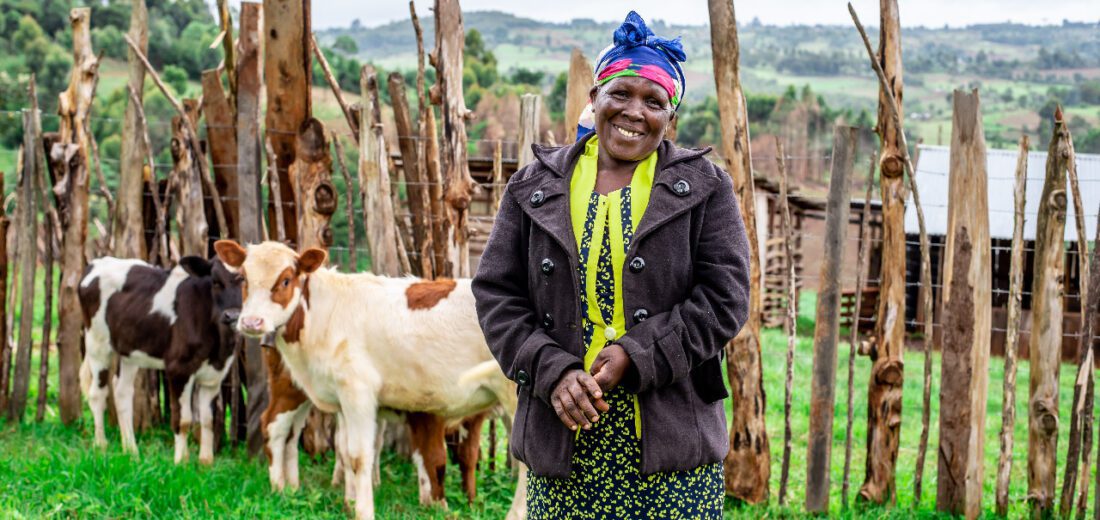
Controversy over the milk law
A development programme, supported by the Netherlands, aimed to make Kenya’s dairy sector more efficient, which would bring down the price of dairy milk. Critics say the Netherlands is mainly concerned with the interests of its farms, not development. This is not a coherent policy, they argue. A Dutch lobby allegedly led to a law against the sale of raw milk, harming millions of farmers. In part two of the rationale for the Netherlands’ international agricultural policy, we examine how true this is.
Local dairy farmers in Kenya are struggling to compete with cheap imported milk powder. Those imports come mainly from neighbouring Uganda, but for a few years now, imports of milk powder from the Netherlands, Belgium, and Germany have also been growing strongly. To be competitive, the costs of milk in Kenya must come down and the quality of milk must improve. That was the aim of SNV’s Netherlands-backed development programme Kenya Market-led Dairy Programme (KMDP) in Kenya. It was funded from 2012 to 2019 as part of the Netherlands’ aid and trade policy.
Small-scale farmers are the backbone of Kenya’s dairy sector, says Anton Jansen, who was programme leader of that programme until 2019. They sell most of the milk they produce in informal trade, as raw and unprocessed milk, directly from the farmer to the consumer. This happens a lot, especially in rural areas. Another part of the milk goes through the formal sector, in which farmers supply their milk to cooperatives and dairy processing plants, which process the milk into packaged pasteurised milk, long-life milk (UHT), mala (sour, fermented milk), yoghurt or cheese, which is sold mainly in the cities to people from not only higher, but also lower income groups.
Jansen: ‘We focused KMDP on the small-scale farmers who produce for the market and the dairy cooperatives they were members of. Cooperatives buy milk and provide inputs and services to their members including extension and credit, but not farmers who produce exclusively for self-sufficiency. We also worked with a group of larger professional dairy farmers who supplied, for example, roughage, young cattle and training to smallholders.’ The dividing line between the informal and formal sectors is thin, says Jansen. ‘In practice, both smallholders and large farmers simultaneously or alternately supply part of their milk to a cooperative or dairy. This is followed by another part directly to consumers or a trader who sells the milk as raw milk to consumers, a hotel or school.’
SNV gave farmers technical knowledge that reduced their production costs. It further supported cooperatives with better services and education for their members. It also worked to improve milk quality by teaching farmers and cooperatives to handle their milk hygienically, Jansen says. The programme also aimed to make the Kenyan dairy market ripe for trade from Dutch companies. Jansen: ‘Especially where they could strengthen the Kenyan dairy sector with knowledge, technology and investments.’ 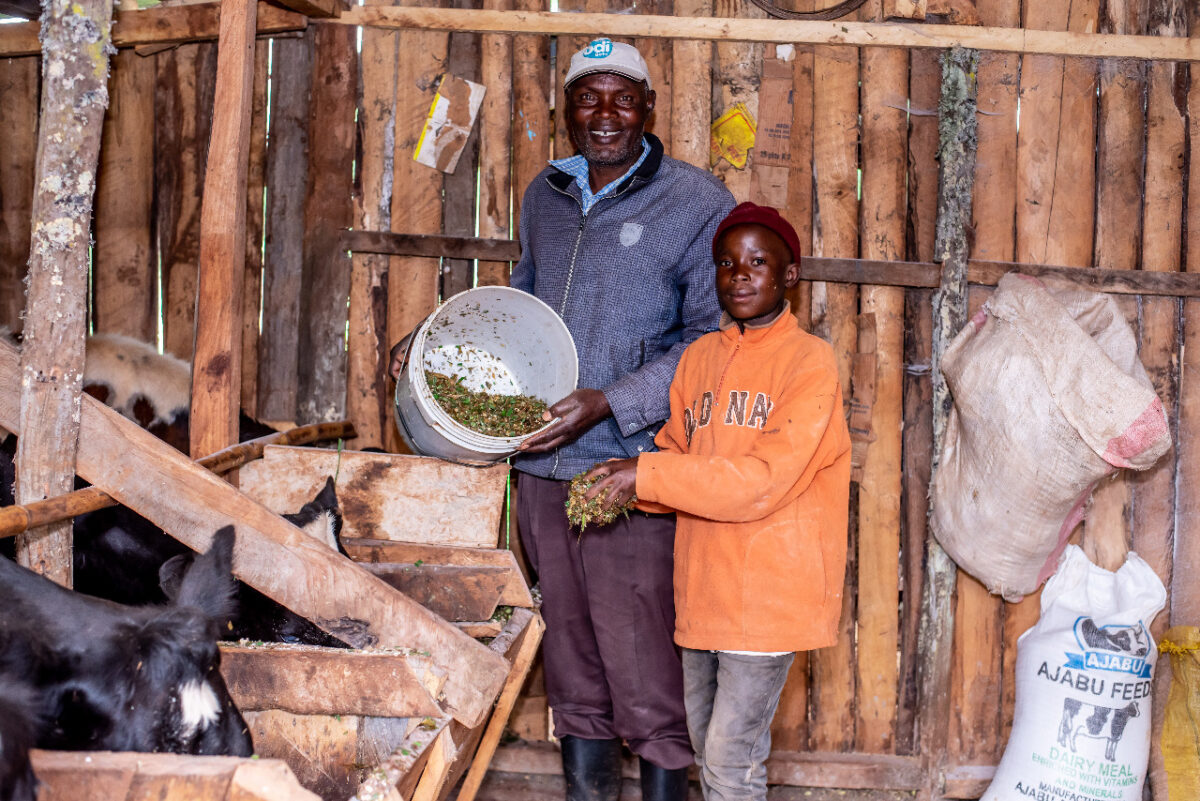
Violet Matiru is critical of the development aid the Netherlands has poured into Kenyan dairy farming, such as through SNV’s programme. Matiru works for the local environmental organisation Millennium Community Development Initiatives and collaborates with the Dutch organisation BothEnds. ‘This so-called aid is not meant to bring development, but to open the market for Dutch companies, who want to sell milking machines, milking robots, and milk powder. It is used to bribe our politicians to allow them to open our markets to exploitation.’ She calls development aid a lie. ‘At embassies, I prefer to talk to people who deal with trade. They are simply honest and say they care about their country and their company’s interests. People in development cooperation say they care about Africa’s fate. In reality, they are putting pressure on our government to push through policies that they claim are helpful for Kenyans. However, these policies are only favourable to Dutch companies. In our country, European interests in Africa are not benign. It is the same interest they had when they colonised us. To use our market and our raw materials.’
Matiru sees evidence of this in the ban on the sale of raw milk in Kenya introduced by the Kenyan Dairy Board. This is the umbrella organisation for milk processing companies in Kenya. ‘SNV pushed that policy, supposedly because raw milk would not be safe. That might work in the Netherlands, but in Kenya, raw milk has been sold for ages, and people cook it themselves at home before using it. This draconian amendment to the law is destroying the lives of a lot of poor small-scale farmers – and unlike Dutch farmers, they have no government subsidy, receive no agricultural education, and are now not even allowed to sell their milk thanks to SNV!’ It does not stop at legislation, says Matiru. ‘Authorities from the Kenya Dairy Board, together with the local police, stop people transporting raw milk, take it away and pour it on the ground. They are then fined ten thousand Kenyan shillings.’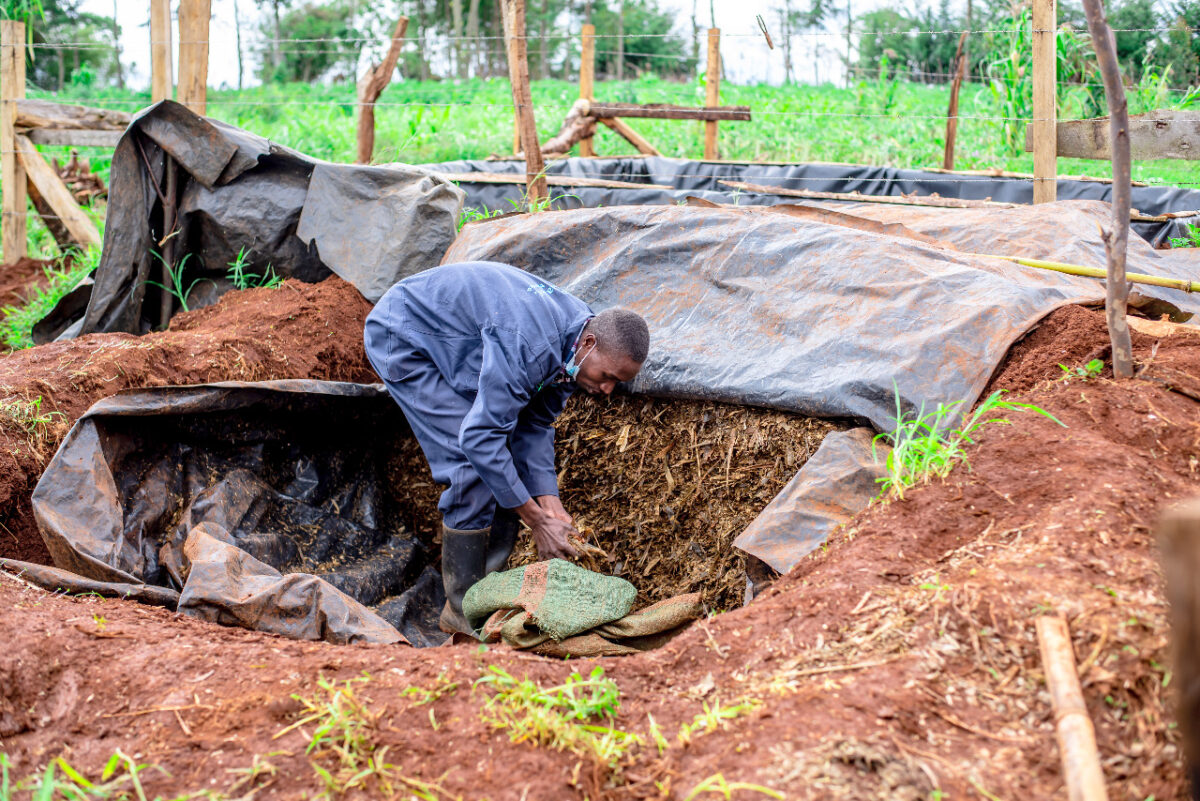
The ban on raw milk was the result of Dutch lobbying from the embassy. This is according to Francis Muhoho, who works as a university lecturer in food technology and consultant in the Kenyan dairy sector. ‘The role of local policymakers was reduced to rubber-stamping what SNV produced. Most of the reports were prepared by foreigners. The ban on raw milk sales has forced farmers to buy expensive equipment, and sell their milk to milk processing plants. The measure is meant to increase the quality of milk, but it does not take into account the challenges of ordinary small farmers.’
Indeed, concerns about raw milk quality appear regularly in studies, policy notes and reports by SNV and other NGOs, an internet search reveals. Unprocessed raw milk is a fragile product and spoils quickly, making it easy for people to get sick. Moreover, traces of veterinary drugs are often found in raw milk and chemicals to promote shelf life. This is a serious public health threat in Kenya. In that area, SNV has trained farmers and cooperatives in the safe handling of milk and conducted experiments in which farmers are paid more for good-quality milk. But reports by SNV have also found poor compliance with the ban on selling raw milk. In at least one report made by SNV together with IFPRI as part of the Voice for Change Partnership, SNV recommends – among other things – more frequent monitoring and tougher sanctions, as well as giving farmers who perform poorly the chance to improve.
Anton Jansen calls it “a misconception” that SNV would have pushed the law against the sale of raw milk. Safe milk is certainly an issue SNV, together with other organisations, was working on, he says. ‘However, that is not to say that SNV or the Dutch embassy as a donor would have lobbied to create a ban on the sale of raw milk to consumers. This is a policy made by the Kenyan government and the Kenya Dairy Board and is determined by what they deem necessary in the interest of the entire sector: the farmer, cooperatives, milk processors and consumers.’ SNV, as an NGO, has essentially no influence on that kind of policy, Jansen claims. Moreover, according to Jansen, enforcement is not stringent. ‘I think more that the government uses the law to prevent excesses and to be able to deal with non-bonafide traders who transport raw milk in tankers to cities or tamper with milk.’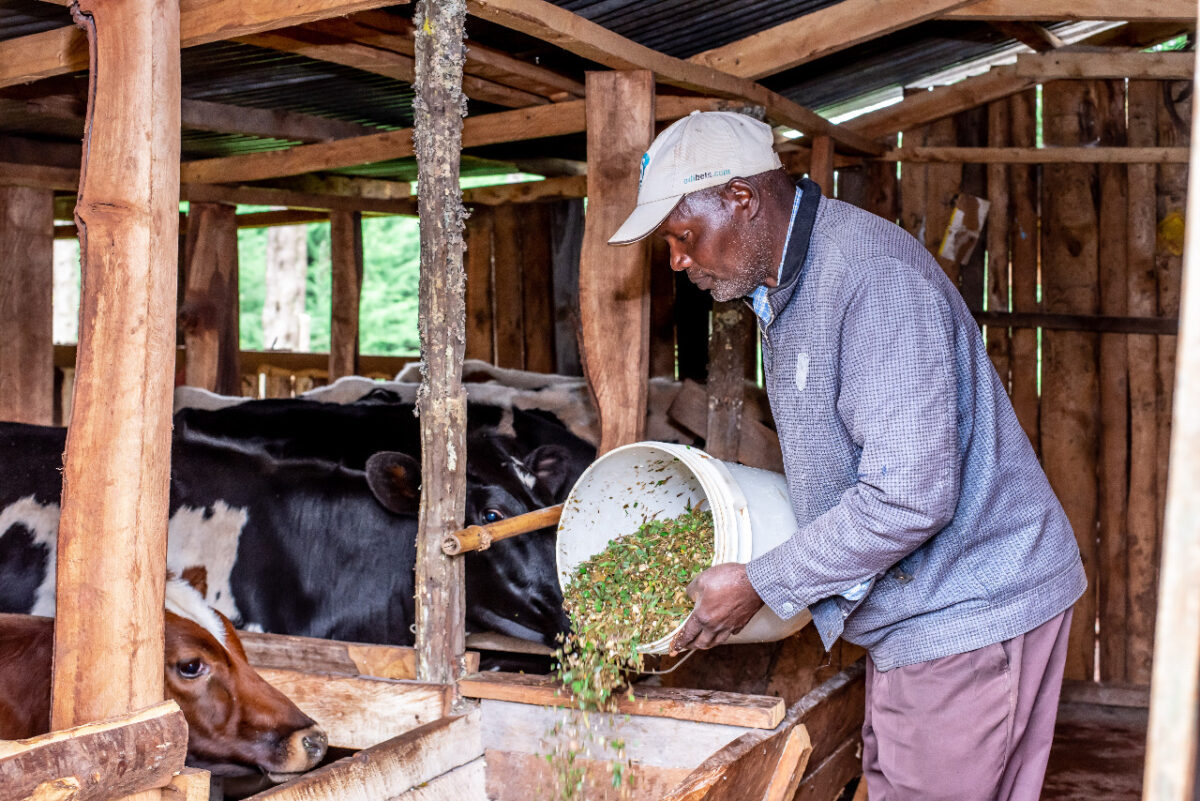
Francis Muhoho says he is not against investment in better-functioning dairy farming. SNV organised several exchanges of Kenyan farmers to the Netherlands to learn from the Dutch dairy sector. ‘And that is positive,’ says Muhoho. ‘But why should this include pushing the sale of Dutch machinery? Labour is cheap in Kenya. Milking by hand is fine here.’
Indeed, engaging the Dutch business community was a goal of the programme, says Jansen. ‘At the time, the embassy had an aid-to-trade policy. The idea was that Dutch companies and knowledge institutions could contribute to the development of this sector. Both SNV and the embassy were critical of Dutch technologies and knowledge from a developmental perspective. The starting point was to work only with companies that offered a product or service that fit the Kenyan context. This would lead to a stronger local sector and would not crowd out existing Kenyan companies. We succeeded reasonably well in this and created many win-win situations.’
Billboards
Besides the revised milk law, development cooperation is also promoting industrial dairy farming in other ways, says Violet Matiru. ‘SNV and USAID have sponsored billboards, aimed at the middle class, stating that only milk made and hygienically packaged by processors is safe and healthy. This demonises the small-scale Kenyan farmer selling raw milk.’
‘As a project, we promote the formal sector, but that does not at all mean we want to vilify the informal sector,’ Jansen responds. ‘We promote the formal sector because we hope that increased sales in that segment will lead to more income for farmers. 80% of the processed milk comes from small farmers who benefit from growing demand.’ Besides promotion among the middle class, SNV has also done other campaigns and studies targeting poor consumers, says Jansen. More sales and investment in the sector are also in the interest of consumers. Otherwise, there would not be enough milk to feed everyone in Kenya. ‘That calls for a stronger more professional sector.’ 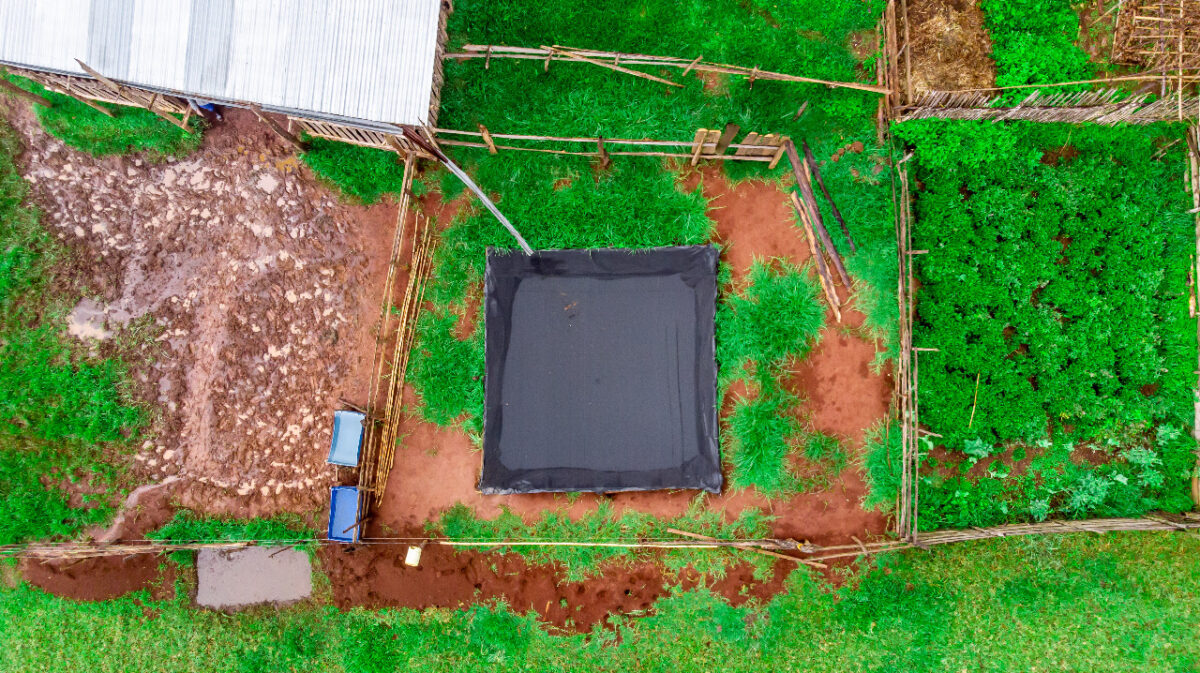
But Violet Matiru wonders who benefits from this professionalisation. ‘So-called improved cow breeds get sick sooner and die faster than the cows we have traditionally had here. And milking by hand works fine in Kenya. Labour is much cheaper than machines here. So why would hand milking not be professional? The question is who decides what is professional? The Dutch insist that farms should get machines to milk cows. Those machines require electricity, and the cost of electricity is very high in Kenya and getting higher every day – that will not make milk cheaper. The Dutch have a vested interest in selling machines so they are trying to determine what is more professional.’ According to Matiru, this applies not only to what is professional but also to what is development in general. ‘If it is not to their liking, the Dutch say we are not developed. The definition of what development is is done by the West. They have defined us as not developed. That is colonial and we are done with it.’
Jansen responds: ‘I can well imagine that if you don’t know the KMDP project well, there might be this mistrust. And for example, as far as Kenya’s policy on racial improvement is concerned, there is certainly a grain of truth in this. We were very critical of that as well.’ But when it comes to hand milking, this does not hold, he says. KMDP has never promoted the use of milking machines among small-scale farmers. ‘Aside from the fact that such investments are expensive for a smallholder, they also are not necessary at all and can sometimes end up backfiring. By hygienically hand-milking and transporting the milk in cleaned milk cans, a smallholder farmer can very well meet the requirements for clean milk. That was also the message of KMDP.’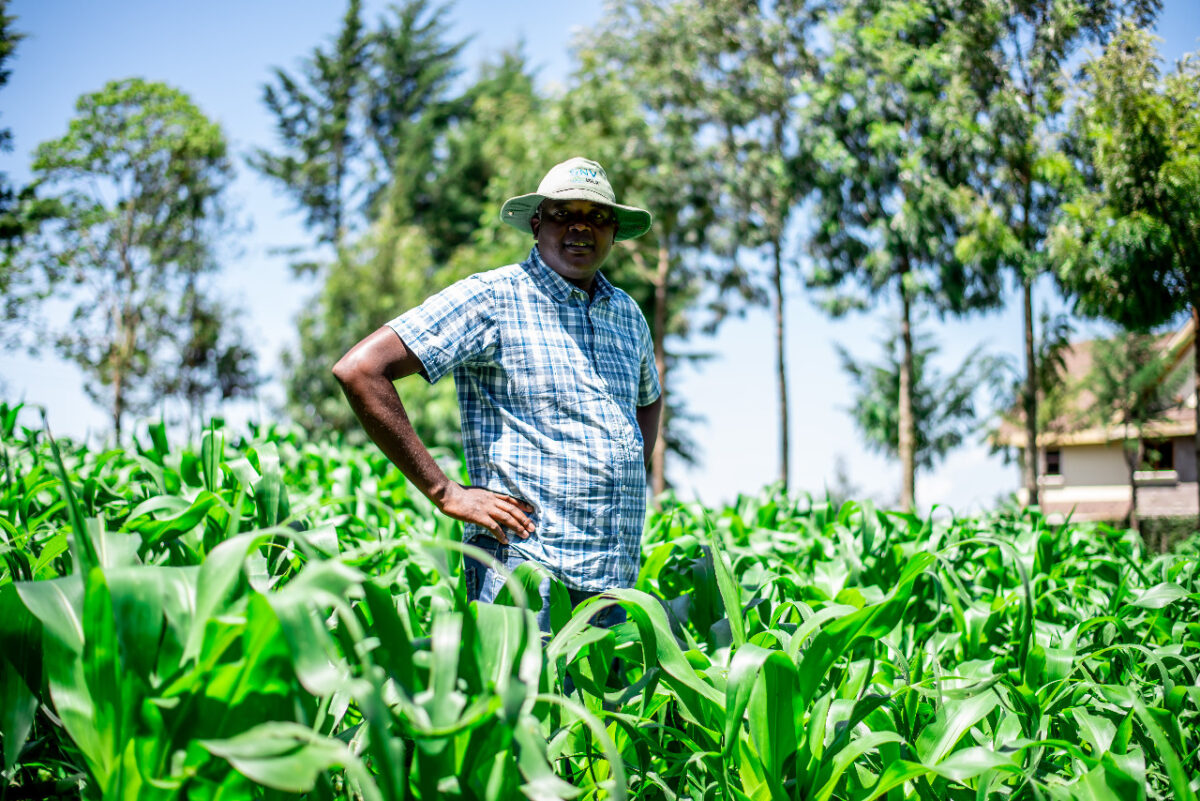
The views of Kenyans in this article seem opposed to those of Dutch experts. Of course, other views can be found both in Kenya and in the Netherlands. But apparently, there are sentiments in Kenya against the Dutch form of development cooperation. It is also clear that there are different interests in the Kenyan dairy sector. What is appropriate for some is not necessarily the same for others. Urban dwellers need safe milk and many small-scale farmers want to be able to sell their milk to cooperatives and processors in the formal sector. Many do not want to lose the traditional trade in raw milk, including small-scale farmers as well as large raw milk traders. All in all, a complicated sector.
The Dutch agenda from aid to trade, which also made room for investments by Dutch companies – albeit not in milking machines, but in other equipment and services – mainly sided with the formal sector in all this and tried to further professionalise it. SNV argues that it did so because the small-scale farmer benefits more from the formal sector. In terms of services to farmers and the processing of milk into other dairy products, the informal sector is relatively small. In the informal sector, it is difficult to improve milk quality and food safety. Critics think otherwise, and see SNV’s choice as a way to pave the way for investments by Dutch companies.

Leave a Reply